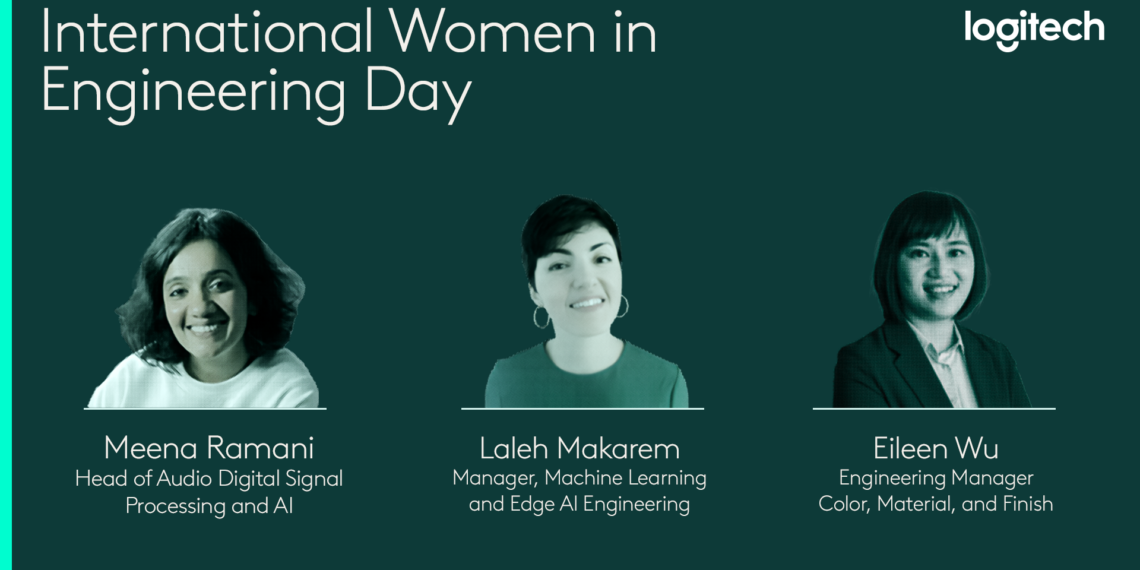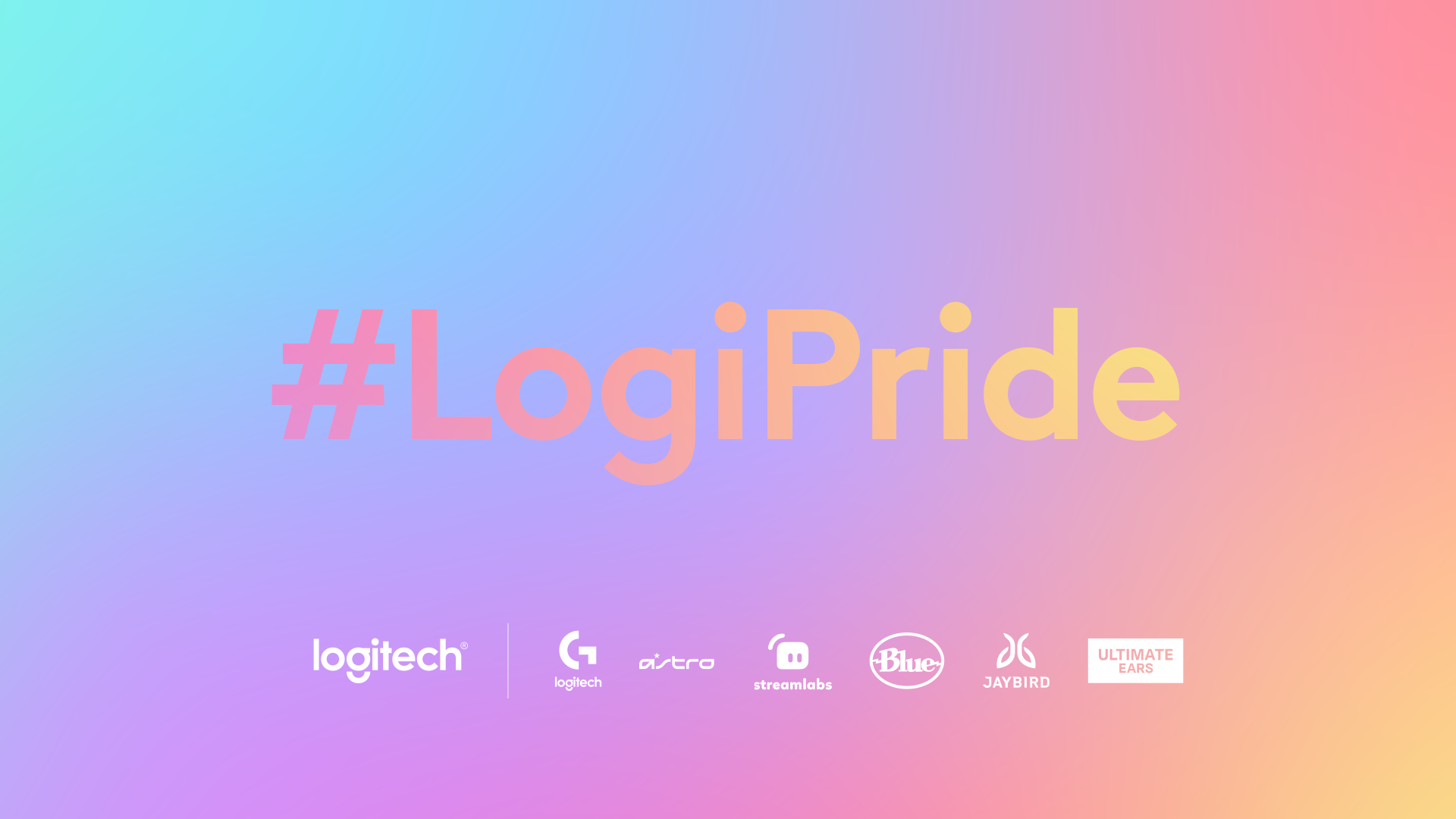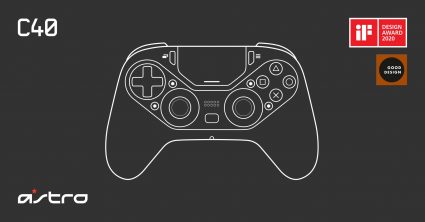International Women in Engineering Day is a global platform to recognize, celebrate, and amplify the contributions of women in shaping the world through engineering. In a field historically dominated by men, this day serves as an inspiring reminder of the diverse talents and perspectives women bring to the table and a compelling call to action for creating a more inclusive and innovative future.
At Logitech, we know that diversity fuels innovation. Women in engineering are breaking stereotypes and redefining what’s possible, pioneering solutions, enhancing collaboration, and driving progress in STEM. Today, we honor the groundbreaking achievements and relentless determination of women engineers while fostering the critical conversations needed to move toward equal representation.
Established in the United Kingdom in 2014 by the Women’s Engineering Society, International Women in Engineering Day celebrates years of progress while addressing the persistent need for change. This movement isn’t just about recognition, it’s about inspiration: empowering the next generation of women to envision themselves as engineers, leaders, and trailblazers in science, technology, and beyond.
Hear more from Laleh Makarem, Eileen Wu, and Meena Ramani, three Logitech engineers who are redefining what it means to be a woman in engineering. Their stories illustrate the challenges, opportunities, and rewards of pursuing a path in STEM; proof of how empowerment can pave the way for future innovators.
What does it mean to you to be a woman in engineering?
Eileen: It’s about the responsibility of showing up so the next generation sees engineering as a place they belong, too. It’s the resilience in facing challenges, and the joy in knowing your work is part of something bigger, building technologies, communities, and ideas that move the world forward.
What advice would you give girls studying STEM and young women who want to get into engineering?
Laleh: My advice is to approach engineering with confidence, curiosity, and persistence. Seek a network that supports and inspires you, or create one! Don’t hesitate to pursue your interests, speak up, and share your perspectives. Most importantly, remember that your abilities and potential define your career far more significantly than gender.
Can you share a project or achievement you’re most proud of in your career?
Laleh: One project I’m particularly proud of is co-founding the TinyML Switzerland community. We built a space for professionals and researchers to exchange knowledge and drive innovation in deploying machine learning on ultra-low-power microcontrollers. Through workshops, hackathons, and demo days, we’ve helped foster a vibrant ecosystem and accelerate real-world applications of Edge AI. EdgeAI engineering is the field focused on designing and deploying artificial intelligence (AI) that runs directly on edge devices close to the source of data such as our mice and keyboard and headset.
What do you do on a day-to-day basis, and what are some recent projects you’ve worked on?
Meena: I lead the Digital signal processing and Machine learning team at Logitech. My team works on the Research, Development, and Implementation of audio algorithms for Hardware Audio engineering products, including Gaming headsets, Logitech for Business headsets, Microphones, and Ultimate Ears speakers.
Our work focuses on enhancing audio in both the microphone path (“how you sound”) and the speaker path (“what you hear”). Recent accomplishments include the implementation of 48 kHz Embedded Bluevoice Microphone processing for the newly announced G522 gaming headset.
What inspired you to pursue a career in engineering?
Eileen: My path to engineering was inspired by a deep curiosity about how materials shape our everyday experiences. During my studies in chemistry, I became fascinated by the potential of materials to solve real-world problems, whether through improving performance, enabling new functionalities, or enhancing sustainability (green energy). This interest naturally evolved into a passion for engineering, where I could bridge scientific understanding with practical application.
Laleh: What initially drew me to engineering was my passion for math and physics. I soon realized engineering would allow me to pursue these interests while providing practical applications to satisfy my desire for problem-solving.
Meena: Growing up in a family that valued education and learning ignited my fascination with understanding how things work, particularly satellites! This led me to pursue my undergraduate studies in Electronics and Communication Engineering. During my Master’s program at the University of Florida, my work as a research assistant at the Computational Neuro-Engineering Laboratory sparked my interest in Biologically inspired signal processing. This ultimately led to my PhD research on Hearing and Speech enhancement, and I have been working on audio signal processing ever since.









